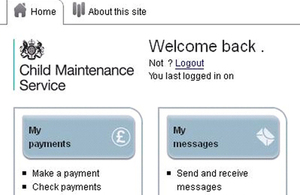
15 Dec High Court rejects Child Maintenance Service operating unlawfully. For Claimants, the need for further reform is clear.
In a judgment today (15 December 2023) the High Court has rejected a judicial review claim brought by four single mothers and/or their children challenging years of delays and inefficiencies in their Child Maintenance Service (“CMS”) cases that have deprived them of thousands of pounds for the support of their children.
The CMS is the government programme responsible for the collection and payment of child maintenance between separated parents. It operates as a go-between in collecting and enforcing payments, prohibiting parents from taking their own enforcement action. The Claimants’ claim was representative of the problems experienced by many CMS users, overwhelmingly women, who have been deprived of thousands of pounds owed to them for the support of their children. A large proportion are domestic abuse victims.
The High Court concluded that the delays and missed payments in the Claimants’ cases were not unlawful but instead the product of “occasional mistakes or missteps…which [are] inevitable from time to time” and “a conscientious pursuit of the [non-resident parent]” on the part of CMS (paragraph 112). Although the judge did recognise that in the case of Claimant ‘BB’ the CMS had “failed to take reasonable steps to collect and enforce maintenance” by failing to move her to CMS’s ‘Collect & Pay’ service for over 6 months, concluding that this was “extremely poor” (paragraph 119).
The judge usefully confirmed that CMS does have a legal duty to comply with human rights protections in relation to domestic violence victims (paragraphs 81-82) – a position opposed by the government – as a result of which future claimants will be able to bring judicial reviews for failures to protect them, or where CMS has allowed itself to be co-opted to inflict economic abuse :
“81. I accordingly consider that if it could be shown on the facts of a particular case that the State knew or ought to have known that a NRP was using the CMS Scheme in order to inflict domestic economic abuse upon his victim which the State could prevent, then the State might indeed have a positive duty to take reasonable steps to ensure the victim’s effective protection from that economic abuse.”
However, the judge rejected the Claimants’ argument that the CMS Decision Makers Guidance – the ‘operators manual’ for CMS caseworkers – was unlawful for failing to mention domestic abuse considerations in relation to key CMS decisions such as whether to investigate a non-paying partner’s finances and the taking of enforcement action. The organisations Surviving Economic Abuse and Women’s Aid provided extensive evidence of how CMS can inflict and sustain economic abuse through paying partners’ evasion and manipulation of payments. However, the judge declined to find that the CMS policy breached human rights protections. He also found that CMS users need to bring judicial review proceedings when they are first affected by any alleged breach by CMS, and that the Claimants’ claims were out of time as a result. The affected Claimants are seeking permission to appeal these issues to the Court of Appeal.
The Claimants are understandably disappointed with the judgment. The problems they are experiencing in receiving consistent payments for their children and in recovering significant arrears continue. However, their case has helped to drive reform, including the government’s announcement on the eve of the hearing, of further planned reforms in rvbgelation to enhanced enforcement and the passage of the Child Support Collection (Domestic Abuse) Act 2023 and Child Support (Enforcement) Act 2023. The Claimants are grateful for the intervention in the case by the organisation Gingerbread, which brought much expertise on the operation of CMS, and the support of organisations such as Surviving Economic Abuse, Women’s Aid and Child Poverty Action Group (CPAG).
A DPG team of Polly Glynn, Daniel Carey, Tabatha Pinto and Catherine Dowle act for the Claimants. DPG colleagues Megan Smith, Ralitsa Peykova and Charlotte Cook have previously worked on the case. Zoe Leventhal KC and Emma Foubister of Matrix Chambers and Emma Dring of Cornerstone Barristers are instructed as counsel. Gingerbread were represented by Reed Smith LLP and Darryl Hutcheon of Matrix Chambers.
